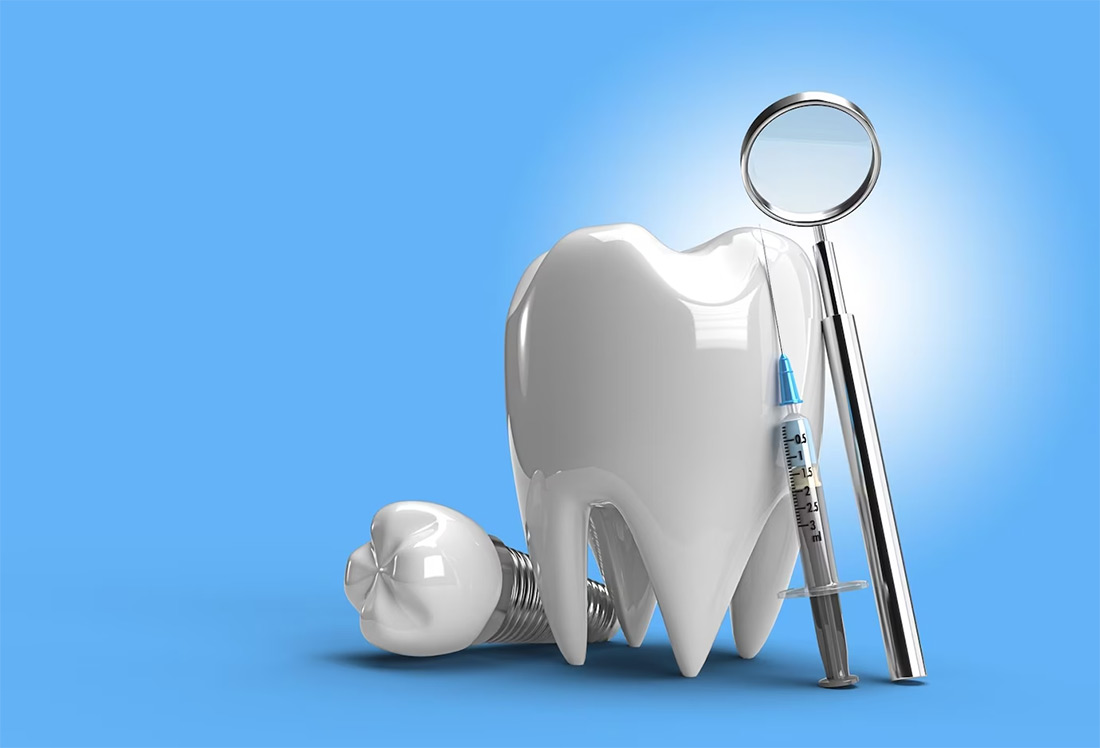
-
Posted By Dr. Maya Dental
-
-
Comments 0
Dental implants have become a revolutionary solution for those seeking to restore their smiles and improve oral health. However, the prospect of undergoing a surgical procedure can be daunting, leading many patients to experience anxiety or fear. Fortunately, with the right approach and support, nervous patients can successfully manage their concerns and approach the process with confidence.
This guide explores strategies and tips to help alleviate anxiety when getting dental implants.
What is Dental Anxiety?
Dental anxiety is a common phenomenon, with many patients expressing concerns about pain, discomfort, or the unfamiliarity of the procedure. For some, anxiety stems from previous negative dental experiences, while others may fear potential complications or the recovery period. Understanding the root causes of your anxiety is a crucial first step in addressing it effectively.
The Importance of Open Communication
Communication plays a vital role in easing anxiety when getting dental implant. Patients should feel comfortable discussing their concerns with their dental specialist. A transparent conversation allows the dentist to provide clear explanations about the procedure, address any misconceptions, and develop a tailored approach to reduce anxiety.
Questions to Ask Your Dentist
- What does the dental implant procedure involve?
- How long will the surgery take?
- What measures are taken to ensure my comfort during the procedure?
- What can I expect during the recovery period?
- Are there options for sedation or pain management?
Trust between the patient and dentist is fundamental in making the experience smoother and less intimidating.
Exploring Sedation Options
Many dental clinics offer sedation techniques to help anxious patients relax during the procedure. These options range from mild to deep sedation, depending on the patient’s comfort level and the complexity of the procedure. Common sedation methods include:
- What does the dental implant procedure involve?
- Nitrous Oxide (Laughing Gas): Provides mild relaxation while keeping the patient awake and responsive.
- Oral Sedation: Administered in pill form, this provides moderate relaxation and may cause drowsiness.
- Intravenous (IV) Sedation: Delivers medication directly into the bloodstream, leading to deep relaxation or sleep.
- General Anesthesia: Reserved for complex cases, this method renders the patient completely unconscious.
- Discussing sedation options with your dentist can help you choose the most suitable method based on your anxiety levels and medical history.
Familiarizing Yourself With the Procedure
Fear of the unknown often exacerbates anxiety. Taking time to understand the dental implant process can demystify the experience. Generally, the procedure involves the following steps:
- Initial Consultation: The dentist evaluates your oral health, takes X-rays, and creates a treatment plan.
- Implant Placement Surgery: The titanium post is placed into the jawbone, where it integrates over time.
- Abutment Placement: Once the implant has fused with the bone, an abutment is attached to hold the crown.
- Crown Placement: Finally, the custom-made crown is fixed onto the abutment, completing the restoration process.
Understanding these steps can empower patients with knowledge, making the procedure seem less intimidating.
Relaxation Techniques to Reduce Anxiety
Adopting relaxation techniques can prepare your mind and body for the procedure. Consider the following practices:
- What does the dental implant procedure involve?
- Deep Breathing: Practice slow, controlled breaths to calm your nervous system.
- Meditation or Mindfulness: Techniques like guided meditation can help focus your mind and reduce stress.
- Visualization: Picture a positive outcome, such as a restored smile and improved confidence.
- Progressive Muscle Relaxation: Gradually tense and relax your muscles to release physical tension.
These methods can be practiced in the days leading up to the surgery and even in the waiting room before the procedure.
Bringing a Support System
Having a trusted friend or family member accompany you to your appointment can provide emotional support. A companion can also assist with post-surgery transportation and help you feel more at ease.
Managing Post-Procedure Concerns
The recovery period is an essential part of the dental implant process, and having a clear plan can reduce anxiety. Your dentist will provide detailed aftercare instructions, which may include:
- What does the dental implant procedure involve?
- Taking prescribed pain medications or over-the-counter pain relievers.
- Applying ice packs to reduce swelling.
- Sticking to a soft-food diet during the initial healing phase.
- Avoiding strenuous activities to promote proper healing.
- Staying informed and adhering to these guidelines can minimize discomfort and help achieve optimal results.
Celebrating the Benefits of Dental Implants
While the thought of undergoing dental implant surgery can be overwhelming, focusing on the long-term benefits can provide motivation and reassurance. Dental implants not only restore functionality and aesthetics but also improve oral health by preventing bone loss and supporting adjacent teeth. The results are a durable, natural-looking smile that boosts confidence and enhances quality of life.
Seeking Professional Support
If dental anxiety persists despite implementing these strategies, consider seeking professional help. Cognitive-behavioral therapy (CBT) or counseling can address deeper fears and teach coping mechanisms for managing anxiety in medical settings.
Feeling nervous about dental implants is entirely normal, but it shouldn’t prevent you from pursuing this life-changing procedure. With the right communication, preparation, and support, overcoming dental implant anxiety is achievable. Remember, working closely with your dentist and focusing on the positive outcomes can lead to a smoother, more comfortable experience, allowing you to reap the benefits of improved oral health and a revitalized smile.
Visit Dr. Maya Dental Centre for Dental Implants in Dubai
We provide advanced 3D CT scan-assisted dental implants using the latest technology. Our state-of-the-art 3D X-ray machine utilizes focused cone beam technology to capture detailed, 360-degree images of your skull and jawbone.
This comprehensive view allows us to carefully plan and execute precise implant placement tailored to your unique anatomy. When needed, surgical guides are used to ensure even greater accuracy, ensuring the best possible outcomes for our patients.


